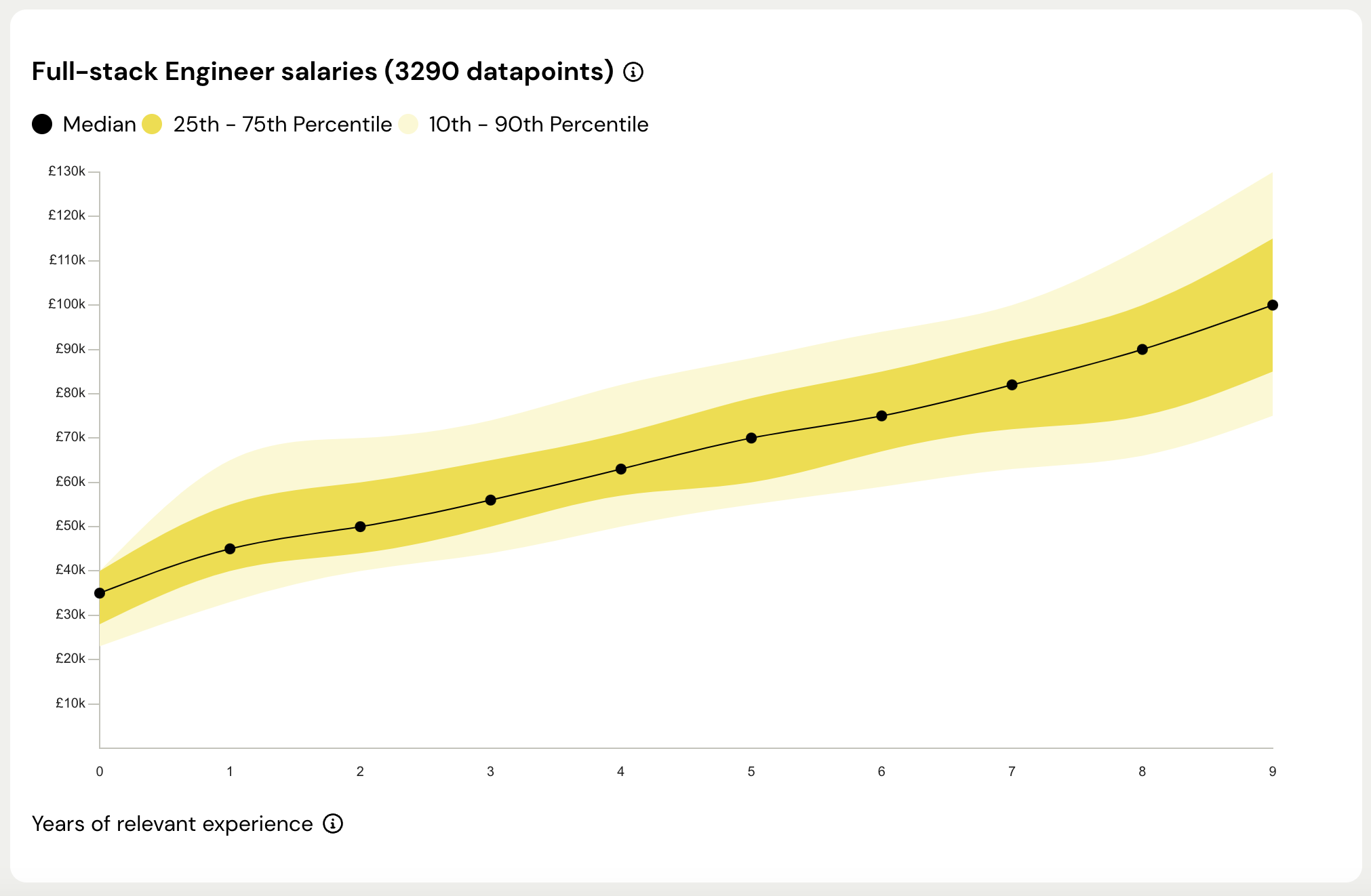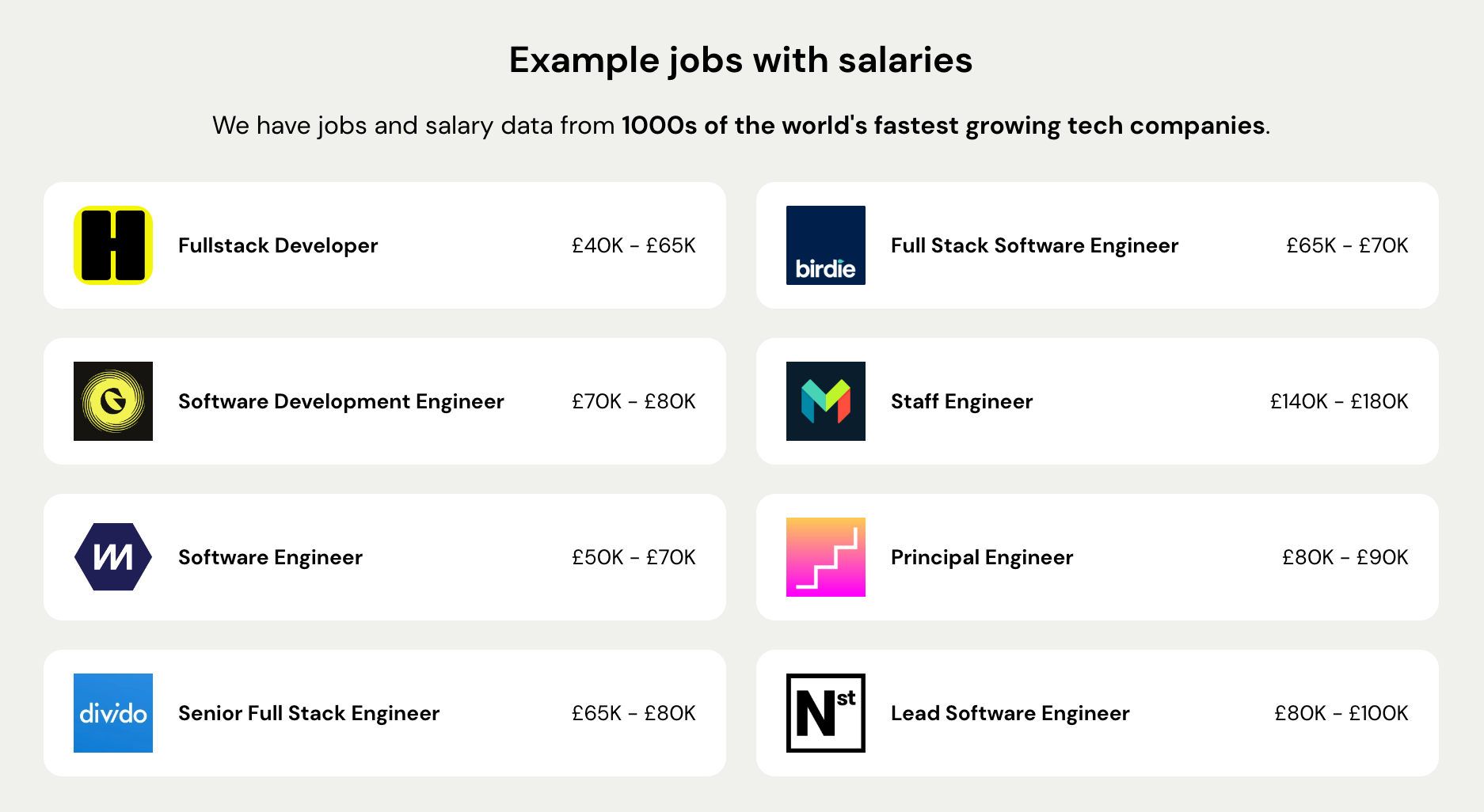Evaluating a salary offer
If you've just received a job offer, congratulations! You may want to consider negotiating your salary, in which case I hope this article is useful. Even if you don't want to negotiate, my advice is to understand where the offer sits versus the market.
This article was originally posted by Otta, which is now called Welcome to the Jungle.

If you've just received a job offer, congratulations! You may want to consider negotiating your salary, in which case I hope this article is useful. Even if you don't want to negotiate, my advice is to understand where the offer sits versus the market.
Have I been offered a fair salary?
We've worked hard to collect thousands of salaries to provide benchmarks. You can visit our Salaries product, and we hope our data helps answer this question.
Here's an example screenshot of benchmarks for Full-stack Engineers:

- We include percentiles (10th, 25th, median, 75th, 90th) as we feel that's a good way to benchmark your offer.
- We don't include filters for company size as the data doesn't show a meaningful difference. The data suggests that if you have an offer from a small company, it doesn't mean you should expect a lower salary.
Should I negotiate?
If you are unhappy with the offer, yes!
Many candidates tell me they don't want to start the relationship on a sour note by negotiating their salary offer. I agree that it may feel strange to negotiate before you join the company. But I strongly believe once you've negotiated, and started the job, the negotiation process is going to be long forgotten. If you prepare well and approach the process with modesty, there is little downside. Plus, this is the opportune moment. Once you've joined the company, you'll have to wait for a salary review, which is sometimes 12 months in the future.
How should I go about negotiating?
My top piece of advice is to seek to understand how the company arrived at your offer to ensure you have all the information. It's hard to argue something when you're not sure of the company's position.
I'd recommend saying something like "It would be good to learn how you arrived at this offer" in an email, or a quick phone call. You may pick up new pieces of information where it's clear you think differently. For example, maybe they're not assessing your experience level correctly, or they don't pay competitively versus other companies.
But try and avoid the temptation to negotiate in the same conversation! You'll be more successful if you take their answer and prepare for a separate conversation.
I know some candidates have successfully used our Salaries product (e.g. taking screenshots, or sending the link to the manager) as a way to point something concrete:
- E.g. You may point out their offer is below average, and you'd expect to be paid at the 75th percentile because of your strengths
- E.g. You may point to a specific role at another company, showing that they pay more than you've been offered
We include example jobs to make the conversation easier. You can click on each card to read the full job description. Here is an example for Full-stack Engineers:

They didn't change my offer, what next?
If you choose to accept the original salary offer, it often works well to set expectations of when you’ll be able to discuss salary again (e.g. in 6 months). This means it's much easier to reopen the conversation. Plus your new manager might make clear what they need to see from you to be considered for a pay-rise.